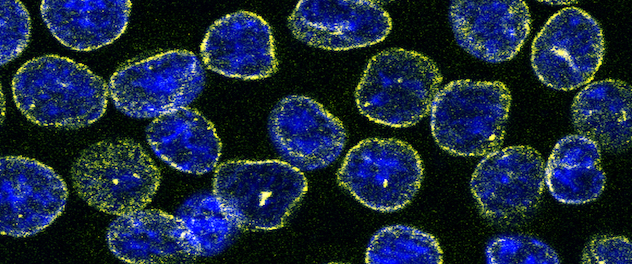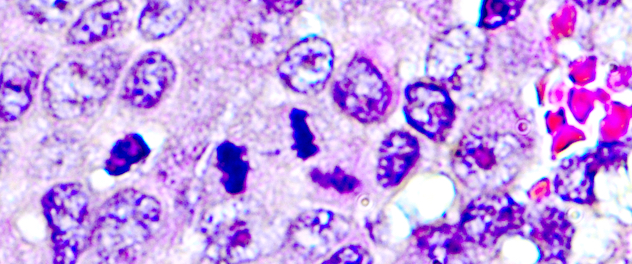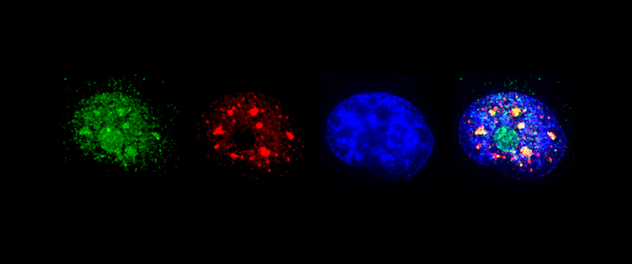-

Nuclear organization and genome regulation by nucleoporins
Nuclear pores are signaling hubs that modulate nuclear transport and important genome functions. The lab studies their mechanistic contribution to cancer aggressiveness.
-

Chromosomal instability tolerance in advanced tumors
Metastatic tumors display high genome complexity, including chromosomal instability — the continued gain or loss of chromosome contents in every cell division. Dr. Rodriguez-Bravo's lab is investigating how to turn a tumor's chromosomal instability against itself.
-

Transcriptional reprogramming in cancer
As cancer advances to aggressive stages, tumor cell reprogramming and transcriptional rewiring provide growth and survival advantages. The lab team is investigating the transcriptional networks that tumor cells turn on to promote aggressiveness.
Research
The ultimate research goal of the Genome Function, Stability and Nuclear Organization in Cancer Lab is to unveil new tumor vulnerabilities with therapeutic potential. The main findings of Dr. Rodriguez-Bravo's group are helping to elucidate the unique transcriptional reprogramming mechanisms that drive therapy resistance and aggressiveness in lethal prostate cancer.
Toward this end, Dr. Rodriguez-Bravo's team is dissecting the role of mechanisms of chromosomal stability maintenance and transcriptional control in human cells. At the molecular level, the team is exposing the routes that aggressive tumor cells take to adapt and survive high levels of chromosomal instability. Her team is analyzing the mechanisms used by these tumor cells to shuffle their genome organization using functional hubs assembled by nucleoporin complexes.
Specific focus areas include:
- Role of nuclear pore complex proteins in the regulation of genome function and stability in healthy cells and cancer cells. The group is investigating the functional role of specific nuclear pore proteins, called nucleoporins (Nups), in the regulation of chromatin and genome integrity in cancer. Previous work from the team unveiled the key role of certain Nups in regulating nuclear import and in chromosomal stability regulation. Future work aims to determine molecular mechanisms promoting cancer cell survival and aggressiveness acquisition.
- Causes and consequences of chromosomal instability in cancer. Recent work from Dr. Rodriguez-Bravo's laboratory has unveiled a unique mechanism of genome chaos adaptation in refractory prostate tumors. Her team continues to interrogate the molecular underpinnings of genome instability in cancer. Future goals include turning a tumor's chromosomal instability against itself as a suitable therapeutic strategy to target a chromosomally unstable cancer.
- Transcriptional rewiring and plasticity in advanced prostate cancer. The group also is studying how aggressive tumors reprogram themselves through transcriptional rewiring involving pioneer factors, transcription factors and cofactors to promote survival and therapy resistance.